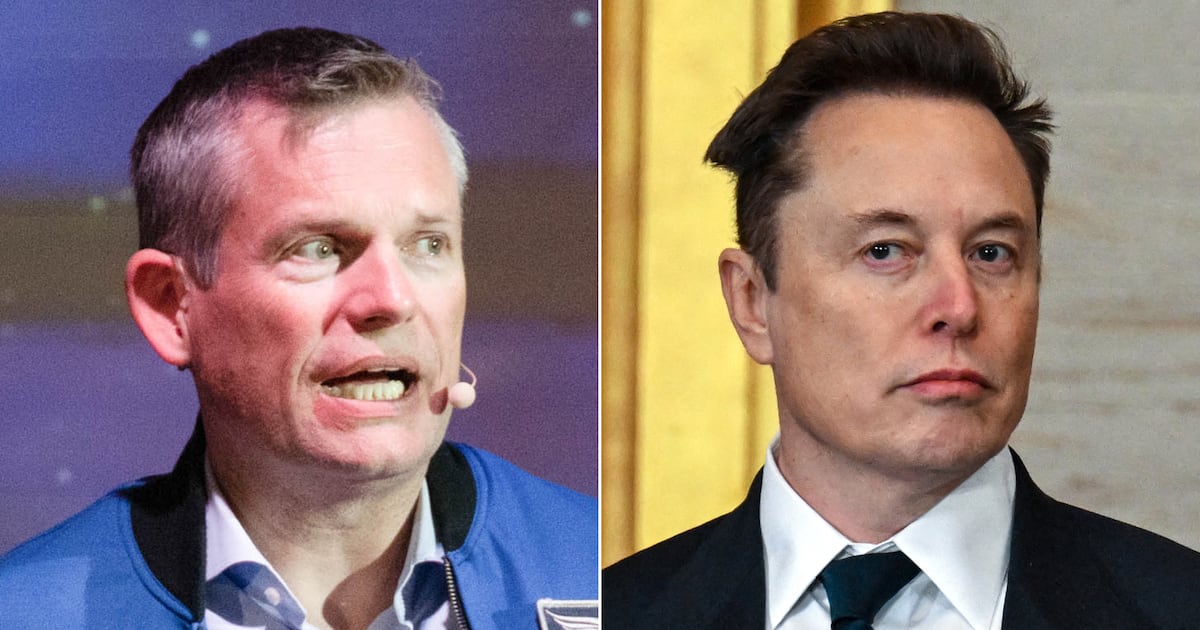One of the most persistent myths in politics—that women shy away from campaigns because they don’t “have the stomach” for fundraising—is taking a beating this election cycle as women have emerged as top money makers, both for their own campaigns and on behalf of other candidates and national campaign committees.
For Democrats in particular, the names most in demand to headline events for candidates around the country are almost all women—from Hillary Clinton to Nancy Pelosi to Democratic National Committee Chairwoman Debbie Wasserman Schultz, and most especially, First Lady Michelle Obama.
When asked to pick the three names he’d want for an ideal Democratic fundraiser, longtime DNC committeeman Robert Zimmerman named Mrs. Obama and Bill and Hillary Clinton.
“Those three stand above the traditional partisan debate and have a reach that runs past politics and can touch people in a very personal way around the issues,” Zimmerman said, adding that the first lady has a particular talent motivating Democratic audiences. “She has such a personal way of connecting with an audience—it’s very unique and special.”
Although she has a reputation for shunning the rubber-chicken circuit, the first lady has actually headlined nearly 30 events for Democrats on her own this cycle, including 24 fundraisers for the DNC and four for individual Senate candidates. With her 61 percent approval rating and a talent for connecting with women and minority audiences in particular, she is uniquely able to go into states where even the president and vice president struggle to motivate voters and donors. Case in point: Georgia, where the first lady appeared last week with Democratic Senate candidate Michelle Nunn for a voter registration rally and fundraiser. “Michelle Nunn does not want to be caught within camera range with the president right now,” said Charles Bullock, a longtime professor of political science at the University of Georgia. “The president could raise funds in the state, but for Democrats there would be a question whether it would be a net gain to do so. It would simply underscore the Republican message that that ‘Michelle Nunn will be Barack Obama’s senator, not yours.’ The first lady does not present that problem to the same degree.”
Democrats declined to say how much money Mrs. Obama has raised for Democrats this year, but without question, no Democrat has been more prolific than House Democratic Leader Nancy Pelosi, who has raised $80 million for Democrats this cycle and more than $400 million in the last 12 years.
Although Pelosi is often the center of Republican attack ads against House Democrats, she is a superstar when it comes to motivating large donors in her own party.
“Somebody like Nancy Pelosi is perceived as far more partisan than the first lady and far more liberal than many voters,” said Jennifer Lawless. the director of the Women & Politics Institute at American University. “But when you look at a pool of potential donors, they look just like her. She’s the kind of person they want to hear from.”
In addition to Pelosi, and other surrogates, Democrats point out that a number of their Senate candidates are prolific fundraisers in their own rights. The top three highest-grossing fundraising quarters for any Democrats this cycle belong to women—Sen. Kay Hagan in North Carolina, Kentucky hopeful Alison Lundergan Grimes, and Georgia’s Michelle Nunn,
Hagan and Nunn are also significantly out-raising their male opponents. In Hagan’s case, she is swamping Republican Thom Tillis, with $16.7 million raised, compared to Tillis’ $4.7 million, according to the Center for Responsive Politics. Nunn has nearly twice as much as her Republican opponent, David Perdue, with $9.2 million to Perdue’s $5.8 million.
On the GOP side, Michigan Republican Terri Lynn Land has pulled in $8.7 million, compared to her Democratic rival, Rep, Gary Peters, who has raised $6.9 million. But other female candidates for the Republicans are not faring as well. Monica Wehby in Oregon and Joni Ernst are both trailing their Democratic opponents’ totals and no woman has emerged nationally for the GOP as a go-to surrogate in the way that the first lady or Nancy Pelosi have in 2014.
“Part of the problem for Republicans is that they don’t have a lot of high-profile candidates this time,” said Jennifer Lawless. “My hunch is that when you look at their most competitive races, women are not necessarily in the mix this year.”
Until women sit in the highest ranks of Republican leadership, it will be hard for GOP women to match Democrats like Pelosi and Hillary Clinton’s fundraising dominance, Lawless said. Their gender is not part of the problem.
“Although nobody likes doing it, study after study shows that men and women are equally successful raising money once they become candidates,” she said. “The notion that women don’t like to raise money is a myth. Plenty of men hate it, too.”






